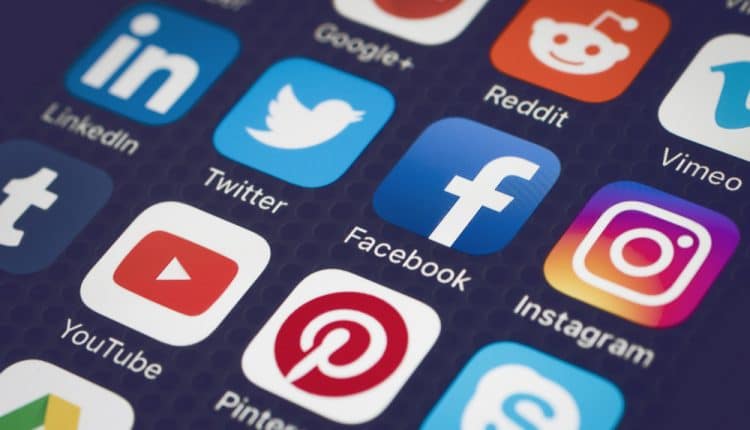
NIGERIANS youths must be media and information literacy competencies in order to be the change agents the country needs, experts have said.
Ifedolapo Ademosu a resource person, who spoke at a two-day webinar organised by the African Centre for Media and Information Literacy (AFRICMIL), stressed the need for more education on media and information literacy by Nigerian youths
Ademosu who spoke on Media and Information Literacy and Freedom of Information: Essential tools in the Promotion of dialogue and participatory democracy, stated that this affects their sense of judgement, while challenging “the principles of equity, diversity and right to free and fair discourse and debate.”
She said the need for youths to be functional and critical consumers of information while producing the same cannot be over-emphasised, adding that the focus of MIL is to provide such competencies.
Speaking also, Dr Sarah Lwahas, a lecturer at the University of Jos said, that understanding MIL would increase the competence level of young people to create a more accurate and subtle understanding of other people, compelling them to respect pluralism and avoid stereotypes as well as applying media content critically for citizen empowerment.
She decried the state of mass illiteracy in a larger society such as Africa, noting that it was responsible for the kind of leaders that have continuously hold leadership roles.
Lwahas noted that older greedy politicians who did not want the youths to make it to a position of leadership have continuously hijacked the youth recruiting them as thugs to settle political scores with opponents, rig elections, cause electoral violence and form pseudo-political parties.
She said this mode of political practice was only possible simply because many of the youths were not literate and or lack knowledge in accessing media contents talk more of analysing them.
“The youth seem to suffer from the ability to harmonise their thoughts and engage institutions that can assist and monitor them to achieve their outcomes… they lack a mechanism to evaluate violence or discriminations against them,” she added.
Dr Lwahas said a fundamental concern of MIL was the need to enlighten and empower people with the needed competencies and critical thinking skills for accessing suitable media information sources that will help them make proper or right decisions.Advertisement
In his presentation on Social Media as a Communication Strategy in the Promotion of Peace and Intercultural Dialogue, Chibuike Mgbeahuruike, said the level of MIL competence of social media users could counter the effects of the ills, it is being used to perpetrate.
He noted that, while peaceful coexistence is under threat, the social media has the power to promote peace democratic discourse, intercultural dialogue and social cohesion, if properly put to use.
Mgbeahuruike also explained that intercultural dialogue would help address stereotyping, violence, create understanding among cultures and enable cooperation and peaceful co-existence whilst maintaining mutual respect for the religious differences of the two dominant religions.
On his part, Zubairu Atta, who spoke on Social Media as a New Communication Strategy in the Promotion of Peace and Intercultural Dialogue, urged the youths to grab the opportunities offered by the social media as a unifying platform to create a discourse on intercultural dialogue, peaceful coexistence, and decision making as well.
He reiterated that youths have always had a role to partake in the community or national governance while also challenging social order where they feel uncomfortable.
He said they need to find ways of understanding the dynamics of the social order while making contributions geared towards change.
Angela Odah, Programme Manager, Rosa Luxemburg Foundation, said youths have continuously borne the brunt of bad governance, living through harsh policies and underfunded educational system which has led to low quality in education as well as prolong ASUU strikes.
“Historically, Nigerian youths have been in the forefront of the struggle for democratization of society, and of decision making in Nigeria’s institutions of higher learning, youths have historically played a vital role in the transformation of societies,” she said.
“Nigerian youths, who had hitherto been tagged “lazy youths” seem to have braced up to play the role of ensuring that our political leaders and government agencies are held accountable for the policies they produce in the governance of our country.”
In a welcome address, Dr Chido Onumah, Coordinator of the African Centre for Media and Information Literacy (AFRICMIL), stated the webinar was meant to build the MIL capacity of youths to promote peace, intercultural dialogue and decision-making.Advertisement
According to him, young people would lend their voices correctly if they were able to access and understand the right information while developing their communication abilities.
“This intervention is planned to provide youths the opportunity to understand and deal with contemporary issues in a responsible, informed, inclusive and effective way, such as to ensuring unity, peace, and progress in Nigeria, he said.”
The webinar which was sponsored by the Rosa Luxemburg Foundation was the third in the series of AFRICMIL’s Political Education Project (PEP).
Source: ICIR
